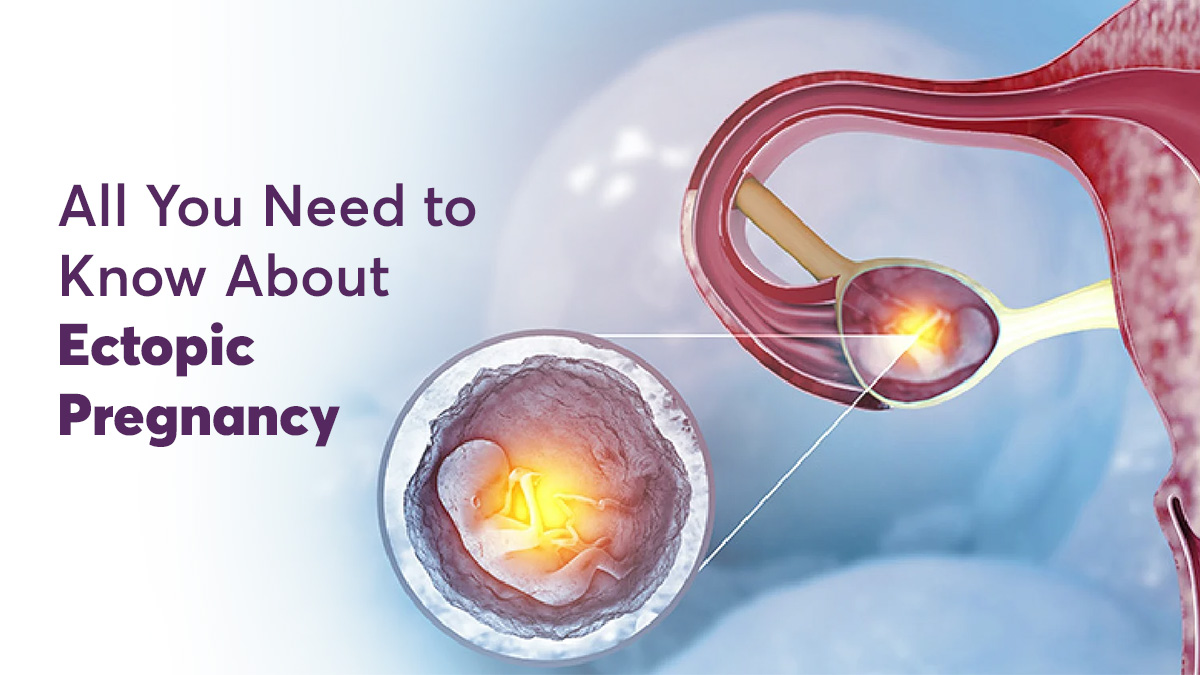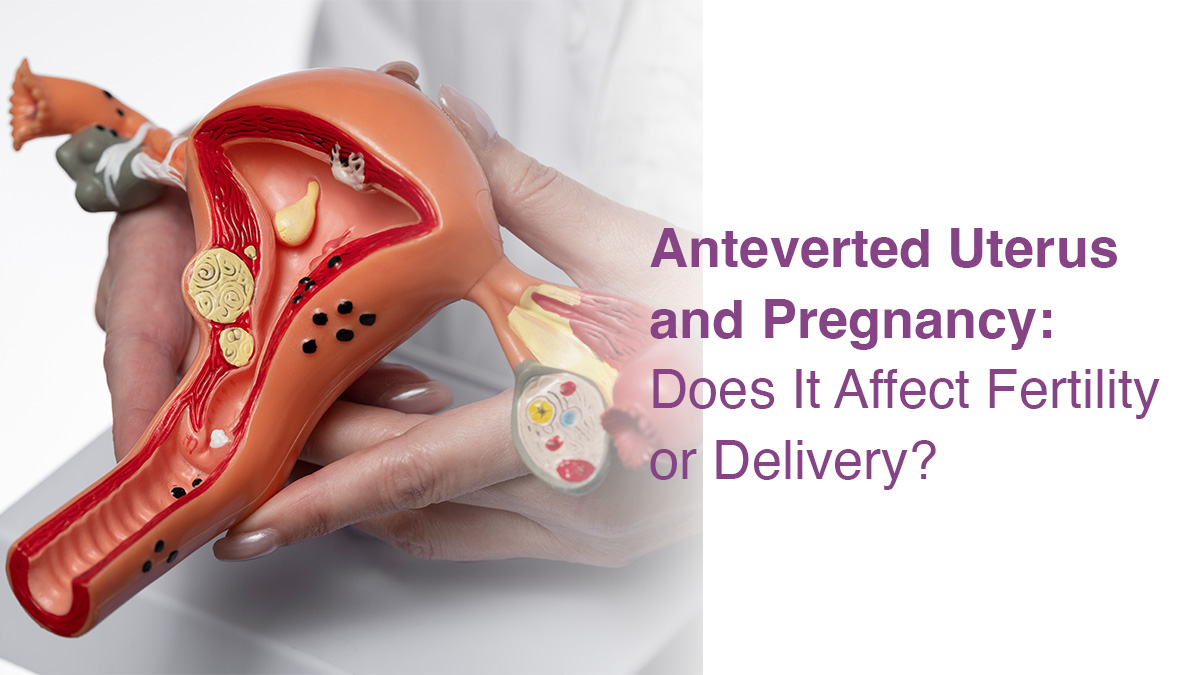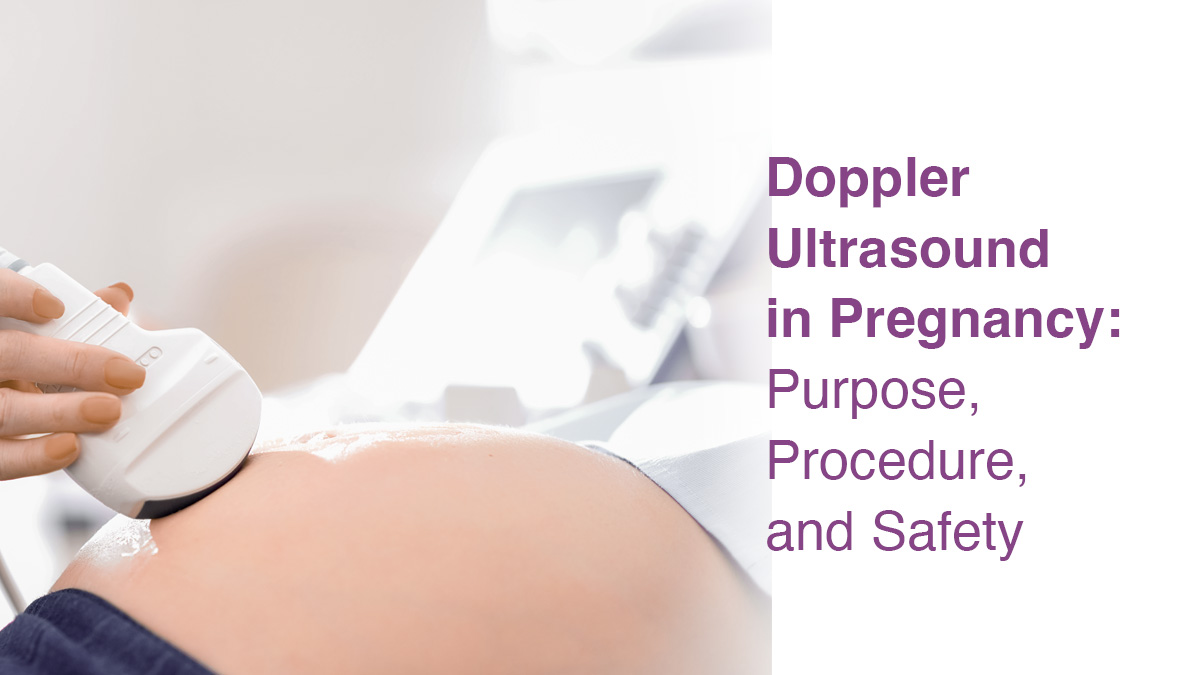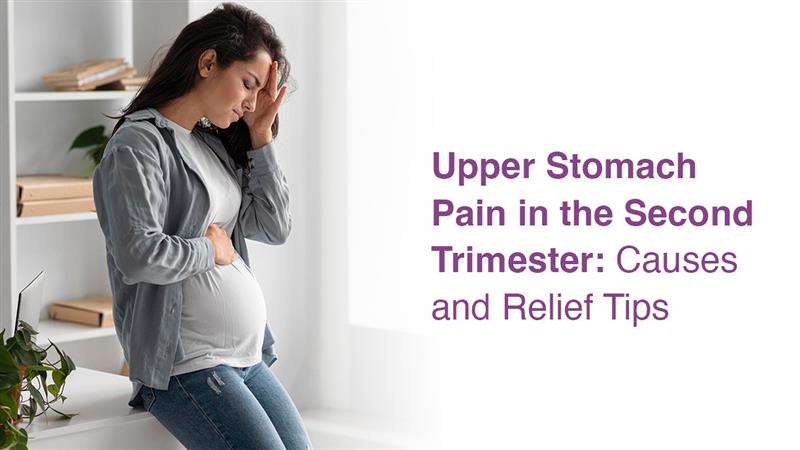
All You Need to Know About Ectopic Pregnancy

Have you been dreaming of parenthood but been unable to fulfill this dream? There could be various reasons for the inability to conceive or carry a pregnancy to full term. One such reason is ectopic pregnancy (EP). In India, about 0.91% to 2.3% of pregnancies are ectopic. In a normal pregnancy, the fertilised egg implants on the uterus wall, where it matures for the next nine months. However, with ectopic tubal pregnancy, the embryo may attach anywhere outside of the uterus, even to the fallopian tubes leading from the ovaries to the uterus. This is why they are also called extrauterine pregnancies.
Who is at Risk for Ectopic Pregnancy?
The most common reasons for this type of pregnancy are a history of abortions (or miscarriages) or pelvic inflammatory disease (PID). In fact, 80% of ectopic pregnancy (EP) occurs in women with such medical history. Other conditions that increase the risk of EP are:
- Smoking and drinking
- Endometriosis
- IUD implants
- History of pelvic surgeries
- Sexually transmitted diseases
- Tubal ligation or ligation reversal procedures
Types of Ectopic Pregnancy
While there are various causes, the location where the embryo attaches determines the type of ectopic pregnancy.
Tubal EP
When the embryo attaches to the fallopian tube, it is called an ectopic tubal pregnancy. Tubal pregnancy is the most common form of EP. It may occur due to tubal inflammation, PCOD/PCOS, or hormonal imbalances. Tubal pregnancy symptoms include loss of blood and shoulder/abdominal pain.
Ovarian EP
Ovarian EP is a rare condition in which the fertilised egg implants outside the ovary. It may occur if the fertilised egg moves from the fallopian tube to the ovary or when the sperm fertilises the egg while it is still in the follicle.
Abdominal EP
Abdominal ectopic gestation occurs when the embryo travels outside the reproductive tract to the abdominal cavity via lymphatic channels. Here, the embryo could attach to the spine, abdominal wall, or stomach.
Cervical EP
In cervical EP, fertilisation either occurs after the egg reaches the cervical canal or the embryo travels to the cavity connecting the uterus and the cervix. It may occur due to endometriosis or other conditions that damage the uterine lining.
Symptoms of Ectopic Pregnancy
Often, the signs of an ectopic pregnancy are very similar to those of a normal pregnancy, such as missing periods, pelvic discomfort and breast tenderness. Women with EP may also experience unusual vomiting, nausea, or sharp belly pain. Symptoms that specifically indicate an extrauterine pregnancy are:
- Repeatedly upset stomach
- Sharp belly cramps
- Pain on one side of the abdomen
- Extreme weakness in the first trimester
- Pain in the shoulder, rectum, or neck
However, none of these signs confirms an EP. Therefore, a medical diagnosis is essential to identify the presence and location of ectopic gestation.
Diagnosis of Ectopic Pregnancy
Self-diagnosis is never a good idea. It is better to discuss your symptoms with your doctor. They can also guide you regarding any tests and the course of treatment for your specific case. Your doctor may suggest a pelvic exam and one or all of the following procedures to verify an EP:
Imaging Tests:
Commonly, an ultrasound is used to visualise the exact location of embryo implantation.
Blood Tests:
The human chorionic gonadotropin (HCG) hormone levels rise rapidly when the embryo implants into a woman’s uterus. Abnormally low HCG may indicate an extrauterine pregnancy.
Urine Tests:
Urine samples may also be used to discover abnormalities in pregnancy hormone levels to confirm ectopic pregnancy.
Treatment of Ectopic Pregnancy
The uterus is an elastic organ. It expands to nurture and make room for the baby to grow. The embryo cannot survive outside the uterus and may even rupture the organs when it grows outside the uterus. Therefore, the only treatment for ectopic pregnancy is termination of the pregnancy. Your OB/GYN may advise one of the following treatments, depending on the location and duration of ectopic gestation:
Ectopic Pregnancy Treatment with Methotrexate
This is one of the most popular medicines to prevent the embryo from growing. It is necessary to prevent the embryo from rupturing the fallopian tube or damaging the organ where it has attached.
Surgical Removal of EP
In certain cases, the expectant mother is at risk of a miscarriage due to delays in diagnosing the EP or its location. Surgical removal of the embryo may be the only option. Most EPs can be terminated laparoscopically. However, in certain cases, the fallopian tube or ovary might also need to be removed.
Future Pregnancies After Ectopic Pregnancy
You must wait for 3 to 6 months before trying to conceive again after the termination of an ectopic pregnancy. While many women can have normal pregnancies after an EP, it is best to consult a fertility specialist to monitor future pregnancies. The presence of scar tissue after surgical removal or other conditions may reduce the chances of natural conception. A fertility specialist can guide you on the best options to realise your dream of parenthood.
To know more about the meaning of ectopic pregnancy and its treatment, visit your nearest Oasis Clinic. You can also have a live chat or call 1800-3001-1000 for immediate assistance.


fill up the form to get a
Free Consultation
Avail 0% interest on EMI
All Procedures | No Upper Limit
Frequently Asked Questions
Can I prevent an ectopic pregnancy?
In which month is ectopic pregnancy detected?
Is an ectopic pregnancy painful?
Does IVF prevent ectopic pregnancy?
Can ectopic pregnancy make you infertile?
How we reviewed this article:
- Current Version
- September 24, 2024 by Oasis Fertility






